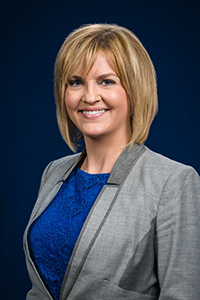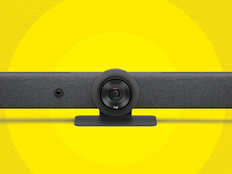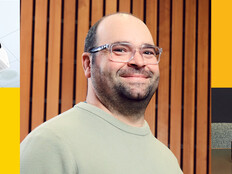Q&A: Becky L. Vasquez Believes in a Marriage of Collaboration and Technology
More than four decades ago, Embry-Riddle Aeronautical University, a nonprofit college specializing in aviation and aerospace, became one of the first universities to offer distance-learning classes.
 Though that program was conducted via mail, Embry-Riddle CIO Becky L. Vasquez says it’s quite indicative of their passion to provide flexible learning. In 2017, Embry-Riddle was named the top online degree program by U.S. News & World Report.
Though that program was conducted via mail, Embry-Riddle CIO Becky L. Vasquez says it’s quite indicative of their passion to provide flexible learning. In 2017, Embry-Riddle was named the top online degree program by U.S. News & World Report.
EdTech talked with Vasquez about what it is that makes their program so successful.
EDTECH: What do you think makes Embry-Riddle’s program stand out?
VASQUEZ: It’s a great partnership between how it’s supported by the people focused on the online learning experience and how that marries with the technology. I think 24/7 support of students is critical.
The approach that Embry-Riddle has for course design is also fundamental. The course designers think a lot about the usability and how students will navigate those courses. It’s not only about creating robust and meaningful learning, but it’s also about how the students are interacting with the online learning environment. In a fully online world, I think that’s a big key to success.
EDTECH: What are some of the challenges of teaching students such complex topics online?
VASQUEZ: As you can imagine, you can’t really provide airplanes for students to fly online. It’s required some creative approaches. We offer both asynchronous and synchronous online learning. We’ve got the asynchronous learning management systems where students can go in anytime and work. But, we still have modules in a live virtual classroom.
I think it’s very beneficial to do that, because you not only have the power of an online platform where a student can be literally anywhere in the world, but when they connect at a scheduled time, they have opportunity for real-time collaboration.
EDTECH: As an aeronautical university, has the online environment helped you to create specialized labs?
VASQUEZ: We have labs that are unique to us. The virtual crash lab space is built on a Unity 3D game engine and works with Oculus Rift, so it’s very immersive. Students essentially manage the crisis after an actual crash. They are in the flight deck with the pilot before the crash happens and they hear exactly what was going on. They also see the crash from the pilot’s perspective. Then the students act like they would if they were investigating the crash. This is a potentially hazardous scenario made safe for students but still exposes them to the real-world environment. Letting them go through the motions is very practical and powerful.
EDTECH: What type of infrastructure is needed to support these complex programs?
VASQUEZ: I think cloud is very important for this kind of scenario, because online programs are only going to get more and more competitive, and leveraging cloud brings agility.
EDTECH: How is your IT staff managing all of this?
VASQUEZ: Our help desk is outsourced, but the rest of it, the server administration, is done in-house. When we contracted Canvas for our learning management system, they offer support specifically for their tool. They have 24/7 chat, self-service and phone support as well. Self-service options are key for online learners.
EDTECH: Have online and distance-learning programs always been important for Embry-Riddle?
VASQUEZ: It’s been a long time in the making and our rich history is probably how we got to number one. It really started with our Worldwide campus when a faculty member wanted to offer classes to military personnel. So, we started putting classrooms on military bases and then we figured out we could also send video by mail. We did everything from cassette to VHS to just full correspondence classes before we went online.
We’ve been a pioneer of online learning; as soon as something could be online, we were there.









